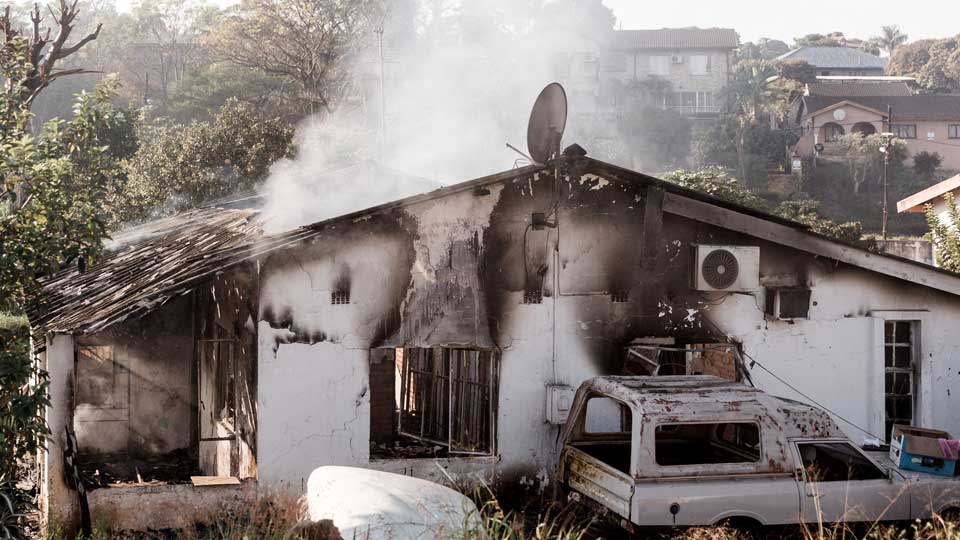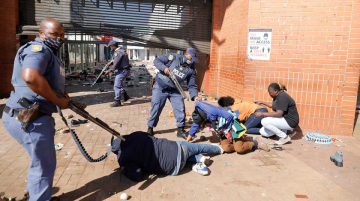As things slowly settle down in South Africa after the last ruinous week, the debates about who’s really to blame are catching fire. It’s now being called an insurrection attempt, and President Ramaphosa has referred to those responsible for fueling the protests as ‘enemies of democracy.’
One of the problems underlying the current crisis is that he’s both right and wrong. South Africa is indeed, as Ramaphosa called it, a ‘hard-fought-for democracy.’ Few can claim to have fought as hard for democracy as South Africa’s liberation forces, a struggle captured in thousands of pages of Truth and Reconciliation Commission transcripts. This tortured victory for democracy is now at the heart of South African self-definition.
Seen through this framing, the current crisis holds a lesson for other democracies too: just because you have a democracy doesn’t mean it will solve the structural inequities built into your economy. SA presents a more extreme version of a dilemma inherent to recent crises in Western democracies too: the unhappy marriage between democracy and neoliberalism. Incidents like the gilets jaunes protests in France and the January 6 protests in the United States point to a similar contradiction: democracy thrives on bottom-up inclusivity, but neoliberalism depends on (and reproduces) steep differences between haves and have-nots. The result is a system where poor citizens are stakeholders in the formal sense of being able to vote but completely disenfranchised in the material sense. In other words, poverty trumps votes. The result is that the very openness of democratic systems becomes weaponized for anti-democratic messaging.
But, as it always does, South Africa rushes to provide complications on top of complications. It’s true that SA is a proud democracy, but it’s also true that the structural centrality of the ANC in its system raises serious questions about the exact way it is a democracy. The ANC isn’t a normal political party. In some senses, it’s more akin to the Catholic Church in some countries – an institution that structures the entire society by shaping people’s identities from cradle to grave. When South Africans lose faith in the ANC they frequently don’t vote for another party – they just stop voting completely.
The result is another uncomfortable marriage: between a ruthlessly neoliberal economy and the social logic of a socialist central party. Eric made the important point in today’s newsletter that the SA crisis is the Chinese Communist Party’s worst nightmare. There are a million differences between the CCP and the ANC, but one big similarity: they both sit at the very center of their respective societies, to the extent that most flows of power and money are routed through them. It’s also difficult to imagine their societies without them.
None of SA’s opposition parties provide a natural political home for Black South Africans disillusioned by the ANC, and it’s almost impossible to imagine any of them actually defeating it at the ballot box. The current crisis might well birth new parties, but so far it hasn’t. This means that the moment’s main political contestation is happening within the party, not between different parties.
The crisis is still so fresh that interpreting it is like trying to read smoke. But there are lessons here for everyone, even if they don’t want them. The lessons South Africans will take from the crisis is anyone’s guess, but it’s clear the situation will change things. We just don’t know which things.










